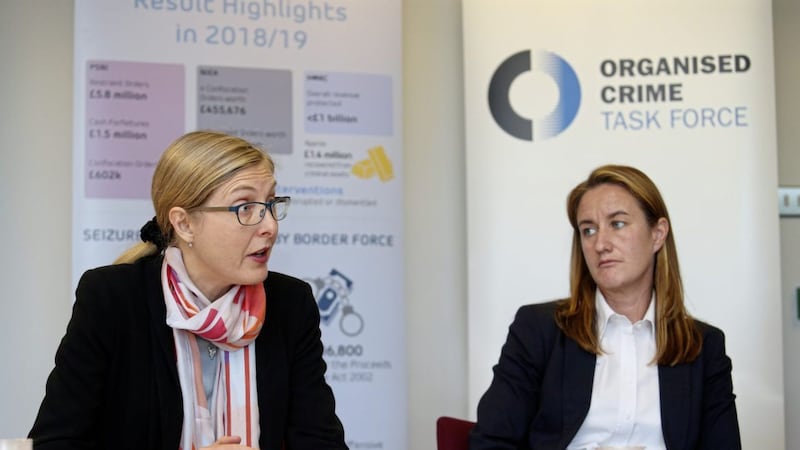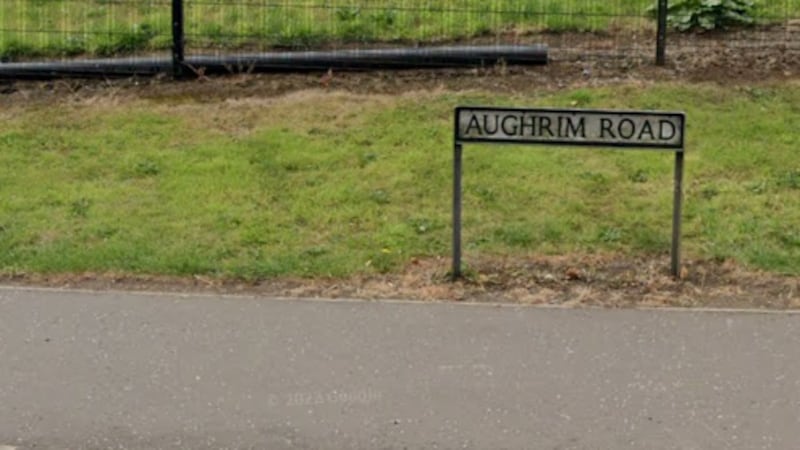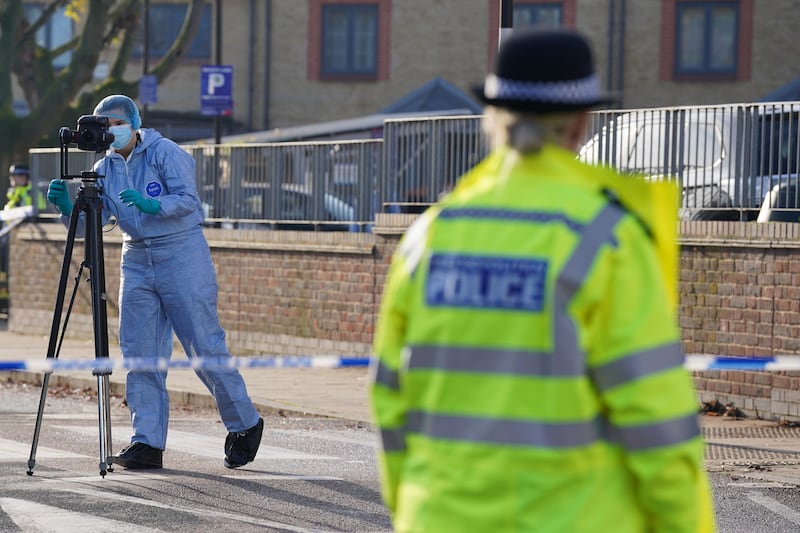Organised criminal gangs "will seek to exploit" any differential of tariffs in the event of a disorganised Brexit using Northern Ireland as a stage for smuggling, a Department of Justice report has claimed.
The annual report and threat assessment by the Organised Crime Task Force has warned that a "No Deal scenario will lead to changes in criminal behaviours, with potential new criminal markets for previously legitimate commodities".
The report also warns that there is the potential "for an economic shock to affect Northern Ireland on leaving the EU, and particularly in a No Deal scenario".
Adding that there is the heightened risk that "organised criminal activity will expand into new sectors potentially fuelling and financing further criminality which will inflict harm on communities".
In a 12-month period between 2018/19 the OCTF say they have removed £1.4m in criminal assets, seized 9.2kg of Class A drugs, 36.5kg of cannabis along with one million cigarettes.
They also rescued 59 potential victims of modern slavery, of those 24 individuals from African countries who were being exploited in the labour market.
There were 22 people, mainly of Asian or European nationality rescued from sexual exploitation.
A number of successful operations working jointly with other forces, including the Romanian Police, helped secure the first conviction for modern slavery in Northern Ireland under legislation introduced in 2015.
Tackling the increase in ATM attacks also involved the OCTF working with other areas of law enforcement.
The report looks at changing trends in crimes, while ATM robberies increased there were just three cash in transit robberies in Northern Ireland - in the early 2000 there would have been over 100 such robberies reported each year.
For the third year running there were no reported 'tiger kidnapping' style robberies of business or banking premises. In 2009 there were 16 reported robberies involving family members of banking staff being held hostage.
In the absence of an executive the report was delivered by the Permanent Secretary of the Department of Justice Peter May.
He said "Organised crime is neither victimless not discriminatory, the problems caused by organised crime can an do affect all of us, whether individually, through business or at societal and community levels.
"Of particular note has been the sustained period of attacks on ATMs that were experienced by communities across Northern Ireland during this financial year.
"These attacks were generally carried out using stolen plant machinery and often resulted in significant damage to the buildings that housed the cash machine.
"I am pleased to be able to report that the PSNI's concerted efforts in responding to these attacks has resulted in the successful disruption of a number of organised crime groups".
Claire Archbold, director of safer communities for the Department of Justice said: We are sending out a clear message that organised criminals will be pursued through the courts and their assets will be stripped".
Adding that the OCTF "remains determined to confront their every action".








